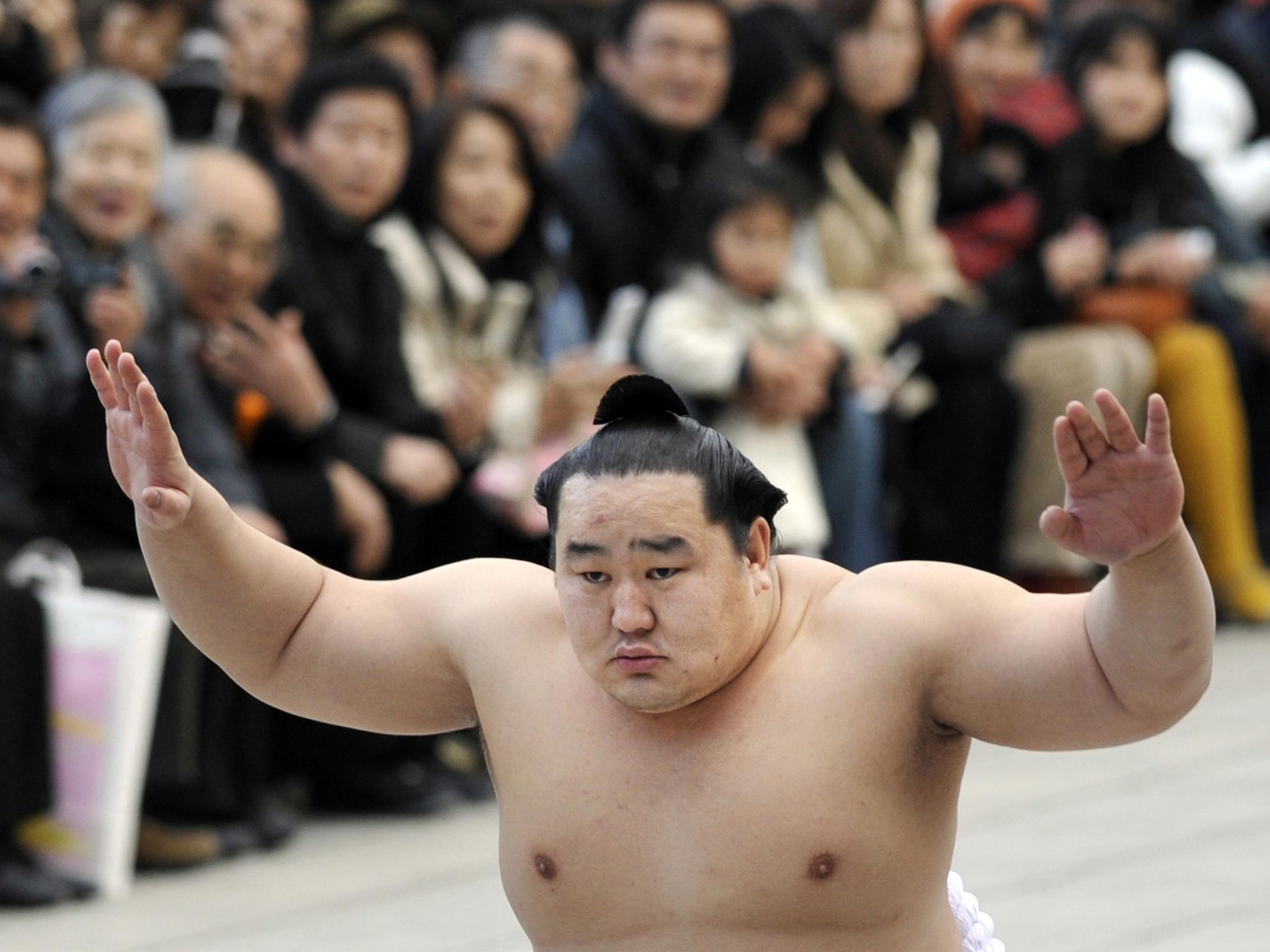Sporting Heroes: Asashoryu Akinori, big daddy of all sumo wrestlers

Your support helps us to tell the story
From reproductive rights to climate change to Big Tech, The Independent is on the ground when the story is developing. Whether it's investigating the financials of Elon Musk's pro-Trump PAC or producing our latest documentary, 'The A Word', which shines a light on the American women fighting for reproductive rights, we know how important it is to parse out the facts from the messaging.
At such a critical moment in US history, we need reporters on the ground. Your donation allows us to keep sending journalists to speak to both sides of the story.
The Independent is trusted by Americans across the entire political spectrum. And unlike many other quality news outlets, we choose not to lock Americans out of our reporting and analysis with paywalls. We believe quality journalism should be available to everyone, paid for by those who can afford it.
Your support makes all the difference.To be a yokozuna is to be of the highest ranking in sumo wrestling. There have only ever been 70, but the 68th, Asashoryu Akinori, stands above them all.
Not only was Akinori the most successful and prolific yokozuna in history, he was also the first Mongolian to achieve the status.
Akinori’s family had a proud reputation in Mongolian wrestling, and he also trained in judo. When he first went to Japan, it was as an exchange student, and he began to train with the sumo club at the school, going on to turn professional in 1999.
In his 23rd tournament, Akinori won the top division title, still the quickest rise to that status. He would become the only sumo wrestler to win all six of the main tournaments in a single year.
Four years after his professional debut, Akinori was promoted to the rank of yokozuna; he was the only active yokozuna from 2003-07.
Though fourth on the list of total tournament wins, he is widely seen as the greatest sumo wrestler of all time. Many in the sumo community feel he might have been more successful still were it not for the distractions of fame that he succumbed to.
The Japan Sumo Association (JSA) and media alike maintained that he did not uphold the values and traditions of a yokozuna. He was once caught playing in a charity football match when he had withdrawn from a sumo tournament due to injury.
Akinori’s career was cut short in 2010 after he was accused of assaulting a man outside a Tokyo nightclub. He retired in the aftermath – the JSA said they would have dismissed him if he had not.
Having never gained Japanese citizenship, Akinori is ineligible to coach but he enjoys a healthy retirement package.
Join our commenting forum
Join thought-provoking conversations, follow other Independent readers and see their replies
Comments